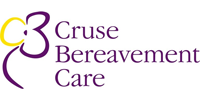What To Do Next

REGULATORY REQUIREMENTS
Here is some brief information on what to do when someone dies, it is not an exhaustive list and we would advise the use of the links provided for further information relating to your own area. Feel free to print it off, it contains a condensed version of the information here. Many have found this very helpful.
If the death occurs at home
When death takes place at home there are usually relatives, friends or neighbours on hand to provide help. As soon as possible inform the doctor that the death has occurred. The doctor may write out the medical certificate of death when she or he visits the house, or may ask you to attend the surgery for this.
When death occurs in hospital
In hospital the procedure is very similar. Apply to the hospital for the medical certificate of death, not your family doctor.
Deaths referred to HM coroner Non-inquest cases
When a death is reported to H.M. Coroner, it is usually a sudden or unexpected death, where the doctor cannot state the cause of death or issue a certificate due to various factors. The doctor informs the Coroner’s Office, and arrangements are made to obtain particulars about the deceased. The Coroner may also ask for a formal identification of the deceased. When a death of this nature happens in a place other than a hospital, the deceased will be removed to a hospital mortuary designated by the Coroner. To discover the cause of death a post-mortem examination is performed at the hospital, by a Pathologist in the presence of the Coroner’s Officer. If the death was due to natural causes, the Coroner’s Officer will inform the relatives of the deceased when the death can be registered, and at which Registrar’s Office. The funeral arrangements can then be completed in the normal way by the relatives and the funeral director.
Deaths referred to HM coroner Inquest cases
If the Coroner’s Office states that there will be an inquest, the relatives will need to attend at the time and date given by the Coroner’s Office. Please note that when an inquest is opened for identification, and adjourned to be resumed at a later date, copies of the death certificate cannot be obtained until after the full inquest is held. However the Coroner will issue an interim Certificate on request.
REGISTERING A DEATH
Deaths need to be registered within five days in England, Wales and Northern Ireland (within eight days in Scotland). It is necessary for someone who knows about the deceased (the informant) to go to the office of the Registrar of Births, Deaths and Marriages in person. The requirements are identified in the Registration Laws. This should ideally be in the sub-district in which the death occurred or the deceased was found. Many register offices now operate on an appointment system. We feel this is so much kinder to bereaved families, rather than having to sit in a waiting room for up to an hour with others attending to register births or even give legal notice for marriages.
There is currently no charge for registering a death, but you will have to pay for certified copies of the entry, which of course you will need for banks, building societies, insurances and a host of other organisations.
REGISTRATION BY DECLARATION
If there are problems in keeping within this time scale, registering may be delayed for a further nine days – as long as written confirmation that a doctor, has signed a certificate of cause of death is given. We can help and guide you with this.
INFORMATION YOU WILL NEED WHEN REGISTERING THE DEATH OF A LOVED ONE
When registering the death, the informant needs to take the medical certificate of the cause of death and, if possible:
The deceased’s medical card
Pension book
The deceased’s birth and marriage certificates
Maiden name if a married woman, and any other names used
YOU MAY ALSO NEED TO TELL THE REGISTRAR
- The time, place & date of death
- The place and date of birth
- The last (usual) address of the deceased
- The deceased’s occupation and the name and occupation of spouse
- The date of birth of the deceased’s surviving widow or widower
- The registrar will make an entry, which you will be asked to approve and sign. The death certificate is a certified copy of the entry in the Register of Deaths and you will be able to obtain copies for a small fee.
The death certificate is very important because banks, building societies, insurance companies and pension providers etc., need it before they will release any funds owing to the deceased’s estate.
The registrar will also give you a certificate for cremation or burial, known as the ‘green form’ (white form in Scotland). These forms are important and your funeral director will require them. You will also be given a certificate of registration of death (form BD 8 rev), which is needed for social security purposes. The relevant parts of this certificate need to be completed and sent to your local DSS office.




